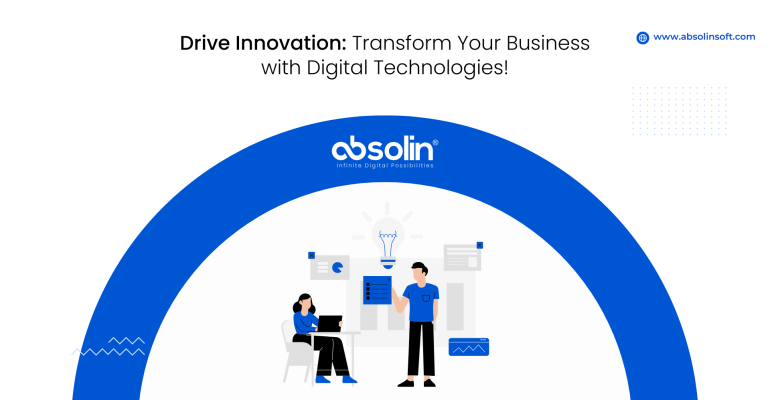Integrating Digital Technologies: The Pathway to Business Innovation
In today’s rapidly evolving business landscape, digital transformation is no longer an option but a necessity. Companies that integrate digital technologies effectively can unlock new growth opportunities, enhance efficiency, and stay ahead of the competition. From artificial intelligence to cloud computing and automation, businesses are leveraging digital tools to drive innovation and transform traditional operations. This article explores the importance of digital integration, key technologies fueling innovation, and best practices for successful adoption.
The Role of Digital Technologies in Business Innovation
Digital transformation refers to the use of advanced technologies to create or modify business processes, culture, and customer experiences. It is not merely about implementing new tools but about rethinking how businesses operate and deliver value to customers. Organizations that integrate digital technologies successfully gain a competitive advantage through improved decision-making, enhanced customer engagement, and optimized operations.
Key benefits of digital transformation include:
- Increased Efficiency: Automation and AI-driven solutions streamline workflows, reducing manual labor and operational costs.
- Enhanced Customer Experience: Personalization, chatbots, and predictive analytics help businesses understand customer needs and deliver superior service.
- Data-Driven Decision Making: Cloud computing and big data analytics empower businesses with actionable insights to make informed strategic choices.
- Agility and Adaptability: Companies that embrace digital tools can quickly respond to market changes and emerging trends.
Key Digital Technologies Fueling Innovation
Several digital technologies are driving business innovation across industries. Here are some of the most impactful ones:
1. Artificial Intelligence (AI) and Machine Learning (ML)
AI-powered solutions enable businesses to automate repetitive tasks, improve decision-making, and enhance customer interactions. Machine learning algorithms analyze vast amounts of data, providing insights that help businesses optimize their strategies.
2. Cloud Computing
Cloud-based solutions provide scalability, flexibility, and cost-effectiveness. Businesses can store, access, and process data securely from anywhere, fostering collaboration and remote work capabilities.
3. Internet of Things (IoT)
IoT devices collect and exchange real-time data, enabling businesses to monitor assets, optimize logistics, and improve customer experiences. Smart sensors, wearable technology, and connected devices enhance productivity and efficiency.
4. Big Data Analytics
Data is the backbone of digital innovation. Companies leverage big data analytics to extract meaningful insights, identify trends, and make data-driven decisions that drive growth.
5. Blockchain Technology
Blockchain offers secure, transparent, and decentralized solutions for transactions and data management. It is transforming industries such as finance, supply chain, and healthcare by enhancing security and reducing fraud.
6. Robotic Process Automation (RPA)
RPA automates repetitive and rule-based tasks, freeing up human employees to focus on higher-value activities. This leads to increased productivity and reduced errors.
Best Practices for Successful Digital Integration
To maximize the benefits of digital transformation, businesses should adopt a strategic approach to implementation. Here are some best practices to consider:
1. Develop a Clear Digital Strategy
Align digital initiatives with business goals and identify areas where technology can provide the most value. A well-defined strategy ensures a seamless transition and long-term success.
2. Invest in Employee Training
Employees play a crucial role in digital transformation. Providing training and upskilling programs helps them adapt to new technologies and utilize them effectively.
3. Enhance Cybersecurity Measures
With increased digital adoption comes the need for robust cybersecurity protocols. Businesses must prioritize data protection, compliance, and risk management to safeguard sensitive information.
4. Leverage Data Analytics
Data-driven decision-making is key to business success. Organizations should harness the power of analytics to understand customer behavior, optimize operations, and drive innovation.
5. Foster a Culture of Innovation
Encouraging experimentation and embracing change helps businesses stay ahead in a digital-first world. Companies should cultivate a mindset of continuous improvement and innovation.
Conclusion
The integration of digital technologies is reshaping the business landscape and fostering unprecedented levels of innovation. Organizations that embrace digital transformation can unlock new opportunities, enhance efficiency, and provide superior customer experiences. By adopting emerging technologies and following best practices, businesses can future-proof their operations and thrive in the digital era.
Are you ready to embark on your digital transformation journey? Now is the time to invest in the right technologies and strategies to drive business success in the ever-evolving digital landscape.






